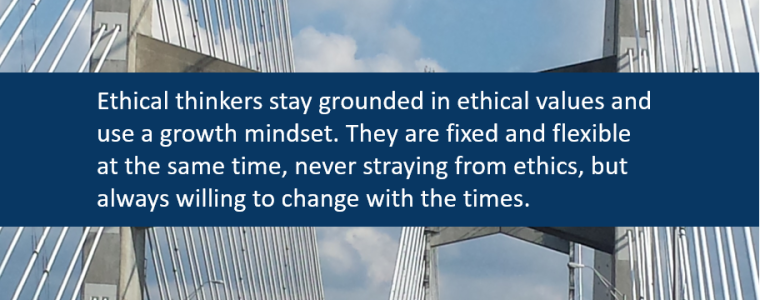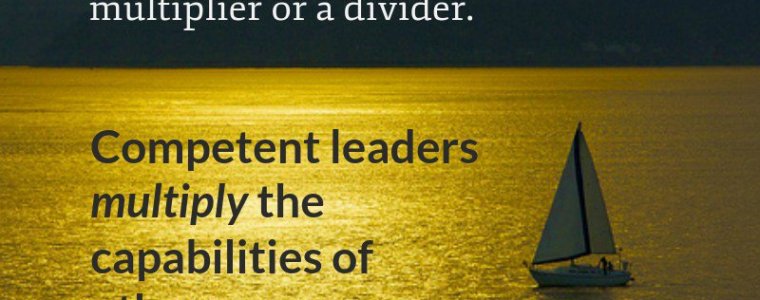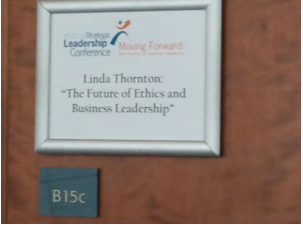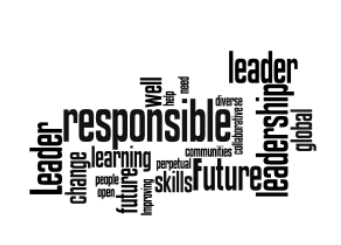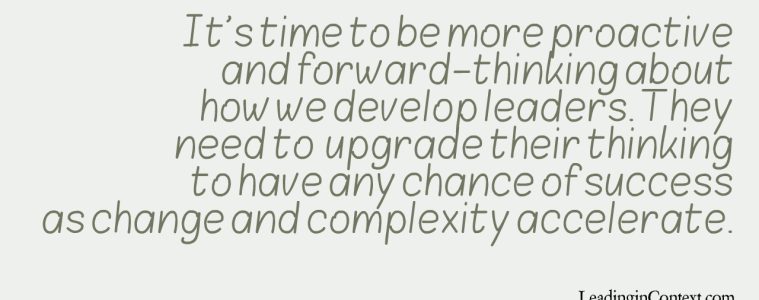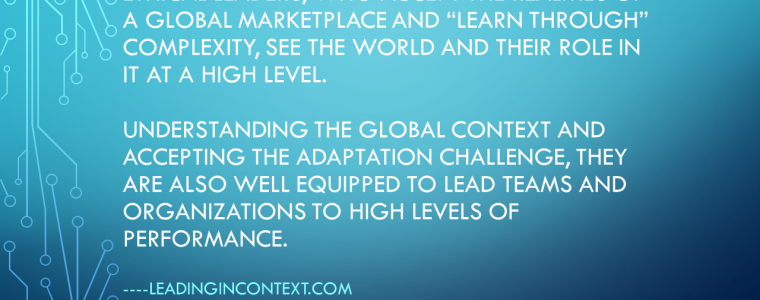By Linda Fisher Thornton Openness to learning about other cultures has become a necessary component of leadership. One way to help people respect cultural differences is to build what UNESCO calls “intercultural competence.” To accomplish this, we need an open mind, and a willingness to learn from others who do not think or live as we do.
Tag: Ethical Leadership Development
11 Paths to Mastering Ethical Leadership
By Linda Fisher Thornton Developing competent ethical leaders can be a huge challenge. Why is it so difficult? We live in a globally connected society, and are expected to be globally aware. We are dealing with catastrophic change and uncertainty. We fill many different roles in our organizations, industries and communities. Each role we play and each decision we face has different ethical implications. Ethical competence is definitely not something that “just happens.”
5 Compelling Reasons Leader Development is a Strategic Priority
By Linda Fisher Thornton Ethical leadership learning is an issue that is gaining attention. Expectations of “good leadership” are increasing and leaders and organizations are scrambling to keep up. While sometimes people disagree about implementation, there is a strong consensus among scholars and research organizations that today’s leadership requires broad, high level, inclusive thinking.
Ethical Leadership Development: Preparing Leaders For the Future
By Linda Fisher Thornton I spoke with Human Resource leaders attending a Richmond SHRM Strategic Leadership Conference about The Future of Ethics and Business Leadership. The lens I used to frame the discussion was leadership development – how we can prepare leaders to lead ethically in a highly complex, connected future. Here are some highlights from my presentation – a few of the important success principles for developing “Ethical Leader Future.
Ethical Leadership Development: Global Awareness
By Linda Fisher Thornton Laws serve as he minimum standards for society, but responsible leadership requires that we go well beyond those minimum standards. This post explores resources that help us understand (1) what it means to be a globally responsible leader and (2) what kinds of learning opportunities help leaders develop a global sense of responsibility.
Ethical Leadership Development: Global Principles
By Linda Fisher Thornton Beyond complying with laws and regulations, what should C-Suite leaders be doing about ethical leadership and responsible business practices? CEOs, CLOs, CHROs and other C-Suite leaders should be working together to ensure that every leader is doing business responsibly and ethically. But what does “doing business responsibly and ethically” look like in today’s global economy? In our interconnected working world, where each economy affects all others around the world, ethical business practices need to be thought about more broadly than ever before.
Ethical Leadership Development: 15 Important Elements
By Linda Fisher Thornton Since moral growth is a lifelong pursuit, moral education needs to start early, and it needs to continue throughout our professional careers. This requires quite a bit more effort than just doing an "annual ethics training." Since ethical leadership itself is multidimensional and nuanced, any ethical leadership development for leaders must be multifaceted and nuanced.
Ethical Leadership Development: High Level View
By Linda Fisher Thornton What is Ethical Leadership Development? Ethical leadership development is the ongoing process of guiding leaders to become ethical people and ethical leaders. It is not the same thing as compliance training or following legal requirements, although those are also important. This is the human development that happens over time to bring leaders to the point of being able to handle what the world throws at them using ethical thinking and action. The way we develop leaders impacts their growth and readiness to make successful and ethical choices when faced with challenging situations.
10 Quotes to Inspire Leaders in 2024 (Part 2)
By Linda Fisher Thornton This series includes 10 quotes (linked to blog posts with leadership guidance) to inspire you and help you improve your leader development as we head into the new year. Part 1 included the first 5. Here are 5 more:
Hallmarks of Ethical Leadership (Part 5)
By Linda Fisher Thornton In Part 5 of this series on attributes of ethical leadership, I explore the importance of really hearing all stakeholders, including those who are not in the room. Here are Part 1, Part 2, Part 3, and Part 4 in case you missed them.
How to Tell What’s “Right” in a Complex Situation
By Linda Fisher Thornton To understand a complex situation, you first have to WANT to see it as it really is. This means letting go of preconceived ideas of what might be true, and being open to what may unfold as you learn more. After approaching the situation with this open mindset, you need to get more information. As you know from completing puzzles with lots of pieces, a few pieces do not show you the whole picture. As you complete a jigsaw puzzle, you start to see parts of the picture and begin to get a sense of it, but you're definitely still not seeing it as it really is.
Ethical Thinking and Decision Making for Leaders (Part 3)
By Linda Fisher Thornton Ethical Thinking and Decision Making require staying grounded in ethical values, but there is much more to do than knowing our values and living them every day through our choices. In Part 1 of this series, I explored the Depth of our thinking, and in Part 2, I broke down issues related to understanding Context. In Part 3, let’s take a look at Complexity.
Ethical Thinking and Decision Making for Leaders (Part 2)
By Linda Fisher Thornton In Part 1 of this series I looked at the importance of Deep Thinking. In Part 2, we’ll consider the Context. No matter how much effort it takes to understand the context, we can’t expect to make an ethical decision without taking that step.
Responding (Ethically) To An Overwhelmed Employee
By Linda Fisher Thornton "The issue of the overwhelmed employee looms large" according to Josh Bersin, Bersin by Deloitte. (Are You an Overwhelmed Employee? New Research Says Yes, LinkedIn). Employees are having a hard time managing an overload of information and tasks, and the problem is not getting any better.
Systems Thinking: The Diet Soda Puzzle
By Linda Fisher Thornton Research is showing that diet sodas do not help prevent weight loss, and in fact may be a cause of weight gain. How can this be? Since the way we understand it depends on which kind of thinking we use, let's examine the issue using several different kinds of thinking.
